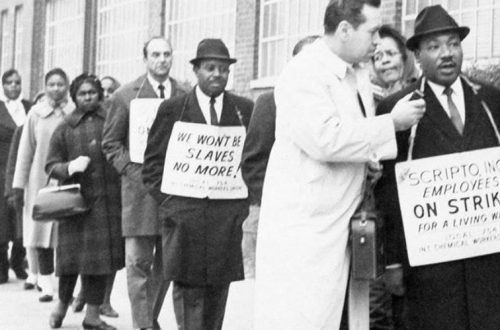It’s easy (and fun) to ridicule student “activists” of the self-indulgent, wooly-headed “look how right-on and radical we are” variety.
But credit is due United Students Against Sweatshops for their campaign that has forced the leading sportswear company Russell Athletic to rehire 1,200 workers in Honduras who lost their jobs when the company closed their factory soon after the workers had unionized.
The New York Times reports:
From the time Russell shut the factory last January, the anti-sweatshop coalition orchestrated a nationwide campaign against the company. Most important, the coalition, United Students Against Sweatshops, persuaded the administrations of Boston College, Columbia, Harvard, New York University, Stanford, Michigan, North Carolina and 89 other colleges and universities to sever or suspend their licensing agreements with Russell. The agreements — some yielding more than $1 million in sales — allowed Russell to put university logos on T-shirts, sweatshirts and fleeces.
…..
In its agreement, not only did Russell agree to reinstate the dismissed workers and open a new plant in Honduras as a unionized factory, it also pledged not to fight unionization at its seven existing factories there.Mike Powers, a Cornell official who is on the board of the Worker Rights Consortium, said Cornell had canceled its licensing agreement because it viewed Russell’s closing of the Honduras factory as a flagrant violation of the university’s code of conduct, which calls for honoring workers’ freedom of association. He applauded Russell’s agreement, which was reached with the consortium and union leaders in Honduras over the weekend.
“This is a landmark event in the history of workers’ rights and the codes of conduct that we expect our licensees to follow,” Mr. Powers said. “My hat is off to Russell.”
…..
In the past, the Honduran workers condemned Russell’s behavior, saying that it had fired 145 workers in 2007 for supporting a union. The union’s vice president, Norma Mejia, said at a Berkshire Hathaway shareholders’ meeting last May that she had received death threats for helping lead the union. Russell denied the assertion.Union leaders in Honduras hailed the agreement, which would put hundreds of laid-off employees back to work in a country whose economy has been hit by a political crisis over who will lead it.
“For us, it was very important to receive the support of the universities,” Moises Alvarado, president of the union at the closed plant in Choloma, said by telephone on Tuesday. “We are impressed by the social conscience of the students in the United States.”
